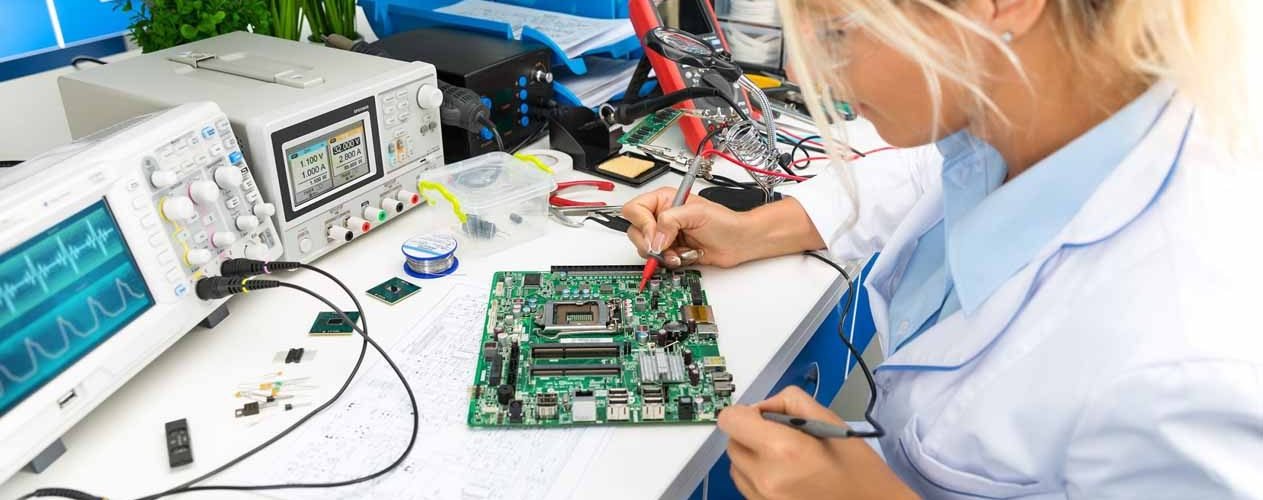Industrial electrical test equipment is pivotal in various sectors, from laboratories to factories and beyond. Its applications are as diverse as the industries it serves, ensuring safety, efficiency, and precision in various processes. This article delves into the versatile applications of industrial test equipment across different settings.
Table of Contents
1. Laboratories: Advancing Research and Development
Laboratories are at the forefront of innovation, where researchers and scientists explore new frontiers. Industrial electrical test equipment finds its place here, aiding in developing and testing cutting-edge technologies. From scrutinising materials’ electrical characteristics to appraising prototypes’ efficacy, test equipment guarantees precise measurements and advances scientific understanding.
2. Manufacturing: Ensuring Product Quality
In manufacturing, precision and quality control are paramount. Industrial electrical test equipment verifies the quality and integrity of products at various stages of production. From electronics to automotive components, this equipment detects defects, measures tolerances, and ensures that each item meets industry standards before reaching consumers.
3. Energy Sector: Managing Power and Distribution
The energy sector relies heavily on industrial electrical test equipment to maintain the reliability and efficiency of power generation and distribution systems. Equipment such as power analysers, relay testers, and insulation testers monitor the health of transformers, circuit breakers, and transmission lines. This ensures the continuous supply of electricity and prevents costly disruptions.
4. Construction: Building Safe and Reliable Infrastructure
The construction industry benefits from industrial electrical test equipment to ensure safe and reliable electrical systems within buildings and infrastructure projects. Testers for grounding, continuity, and insulation play a crucial role in identifying potential hazards and guaranteeing that electrical installations comply with safety regulations.
5. Aerospace and Defense: Ensuring Mission-Critical Reliability
Industrial electrical test equipment is indispensable in aerospace and defence, where precision and reliability are mission-critical. From testing avionics systems to ensuring the performance of military-grade electronics, this equipment contributes to the safety and success of aerospace missions and defence operations.
6. Telecommunications: Supporting Seamless Connectivity
The telecommunications industry relies on industrial electrical test equipment to maintain the seamless operation of networks and communication infrastructure. Cable testers, signal analysers, and network analysers help diagnose issues, optimise signal strength, and enhance the overall quality of telecommunications services.
7. Automotive: Enhancing Vehicle Performance
Industrial electrical test equipment drives the automotive sector, contributing to vehicle safety, efficiency, and performance. Diagnostic tools, battery testers, and electrical system analysers help automotive technicians identify and rectify electrical and electronic issues, ensuring that vehicles operate smoothly and reliably.
8. Renewable Energy: Validating Sustainable Solutions
As the world shifts toward renewable energy sources, industrial electrical test equipment becomes instrumental in validating the efficiency and reliability of solar panels, wind turbines, and other renewable energy systems. Testing ensures these systems harness and convert energy effectively, contributing to a more sustainable future.
9. Medical Devices: Ensuring Patient Safety
In the medical field, precision is vital to patient safety. Industrial electrical test equipment verifies the accuracy and functionality of medical devices, from diagnostic equipment to life-support systems. Regular testing ensures these devices perform accurately and reliably, benefiting patient outcomes.
10. Research and Education: Enhancing Learning Experiences
Educational institutions benefit from industrial electrical test equipment by providing students with hands-on experience and practical training. Students learn to operate equipment such as oscilloscopes, multimeters, and signal generators, preparing them for careers in various technical fields.
Conclusion
The applications of industrial test equipment span a broad spectrum of industries and settings. From laboratories driving innovation to factories ensuring quality production, this equipment underpins safety, reliability, and efficiency across diverse sectors. With the ongoing advancement of technology, industrial electrical test equipment will continue to play a pivotal role in upholding standards, driving knowledge forward, and shaping the trajectory of numerous industries.





